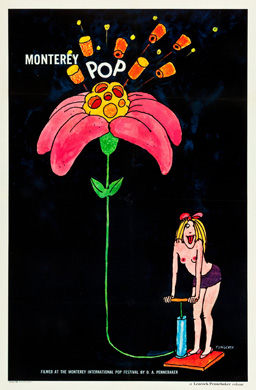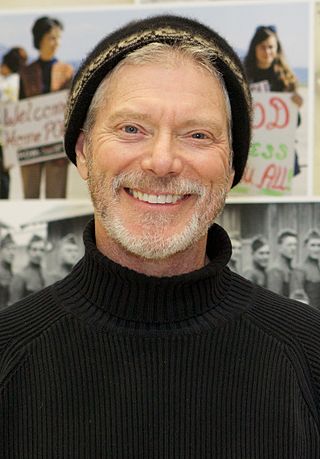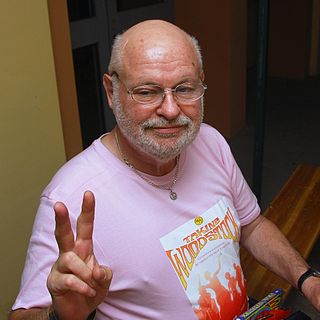Related Research Articles

Woodstock Music and Art Fair, commonly referred to as Woodstock, was a music festival held from August 15 to 18, 1969, on Max Yasgur's dairy farm in Bethel, New York, 40 miles (65 km) southwest of the town of Woodstock. Billed as "an Aquarian Exposition: 3 Days of Peace & Music" and alternatively referred to as the Woodstock Rock Festival, it attracted more than 460,000 attendees. Thirty-two acts performed outdoors despite overcast and sporadic rain. It was one of the largest music festivals in history and became synonymous with the counterculture of the 1960s.

John Benson Sebastian (born March 17, 1944) is an American singer, songwriter and musician who founded the rock band the Lovin' Spoonful. He made an impromptu appearance at the Woodstock festival in 1969 and scored a U.S. No. 1 hit in 1976 with "Welcome Back."

Paul Vaughn Butterfield was an American blues harmonica player, singer and bandleader. After early training as a classical flautist, he developed an interest in blues harmonica. He explored the blues scene in his native Chicago, where he met Muddy Waters and other blues greats, who provided encouragement and opportunities for him to join in jam sessions. He soon began performing with fellow blues enthusiasts Nick Gravenites and Elvin Bishop.
The Altamont Speedway Free Festival was a counterculture rock concert in the United States, held on Saturday, December 6, 1969, at the Altamont Speedway outside of Tracy, California. Approximately 300,000 attended the concert, with some anticipating that it would be a "Woodstock West". The Woodstock festival had taken place in Bethel, New York, in mid-August, almost four months earlier.

Woodstock is a 1970 American documentary film of the watershed counterculture Woodstock Festival which took place in August 1969 near Bethel, New York.

Max Bernard Yasgur was an American farmer. He was the owner of the 600-acre (240 ha) dairy farm in Bethel, New York, where the Woodstock Music and Art Fair was held on August 15–18, 1969. He sold his farm in 1971 and retired to Florida, where he died in 1973.

Sha Na Na was an American rock and roll and doo-wop revival group formed in 1969. The group performed a song-and-dance repertoire based on 1950s hit songs that both revived and parodied the music and the New York City street culture of the 1950s. After gaining initial fame for their performance at the Woodstock Music and Art Fair, made possible with help from their friend Jimi Hendrix, the group hosted Sha Na Na, a syndicated variety series that ran from 1977 to 1981.

Monterey Pop is a 1968 American concert film by D. A. Pennebaker that documents the Monterey International Pop Festival of 1967. Among Pennebaker's several camera operators were fellow documentarians Richard Leacock and Albert Maysles. The painter Brice Marden has an "assistant camera" credit. Titles for the film were by the illustrator Tomi Ungerer. Featured performers include Big Brother and the Holding Company with Janis Joplin, Jefferson Airplane, Hugh Masekela, Otis Redding, Ravi Shankar, the Mamas & the Papas, the Who and the Jimi Hendrix Experience, whose namesake set his guitar on fire, broke it on the stage, then threw the neck of his guitar in the crowd at the end of "Wild Thing".

Stephen Lang is an American actor. He is known for roles in films such as Manhunter (1986), Gettysburg, Tombstone, Gods and Generals (2003), Public Enemies, The Men Who Stare at Goats, Conan the Barbarian (2011) and Don't Breathe (2016). He won the Saturn Award for Best Supporting Actor for his performance in James Cameron's Avatar (2009). Besides his film roles, he has had an extensive career on Broadway, and has received a Tony Award nomination for his role in the 1992 production of The Speed of Darkness. From 2004 to 2006, he was co–artistic director of the Actors Studio.

Michael Scott Lang was an American concert promoter, producer, and artistic manager who was best known as a co-creator of the Woodstock Music & Art Festival in 1969. Lang served as the organizer of the event, as well as the organizer for its follow-up events, Woodstock '94 and the ill-fated Woodstock '99. He later became a producer of records, films, and other concerts, as well as a manager for performing artists, a critically acclaimed author, and a sculptor.
Arthur Lawrence Kornfeld is an American musician, record producer, and music executive. He is best known as the music promoter for the Woodstock Festival held in 1969. Kornfeld is also known for his collaborations with Artie Kaplan.
Joel Rosenman conceived and co-created the Woodstock Festival in 1969. Rosenman thought of the idea for the three-day concert when he and business partner John Roberts were evaluating a proposal from Michael Lang and Artie Kornfeld for a recording studio in upstate New York. The four went on to create the event. Rosenman and Roberts are the co-authors of Making Woodstock, originally published as Young Men with Unlimited Capital, a non-fiction account of their exploits as producers of Woodstock.

The Miami Pop Festival is the name by which a music festival that took place on May 18-19, 1968 in Hallandale, Florida, is sometimes known. The venue was Gulfstream Park, a horse racing track just north of Miami. The event, which was officially publicized on promotional materials and in radio ads as the "1968 Pop and Underground Festival," and "The 1968 Pop Festival," was promoted by Richard O'Barry, Marshall Brevetz and Michael Lang, the latter of whom became famous as one of the four promoters of Woodstock in 1969. Decades later, the May 1968 festival began to be referred to colloquially as the "Miami Pop Festival", leading to confusion with the actual Miami Pop Festival, which took place in December 1968.

Taking Woodstock is a 2009 American historical musical comedy-drama film about the Woodstock Festival of 1969, directed by Ang Lee. The screenplay by James Schamus is based on the memoir Taking Woodstock: A True Story of a Riot, a Concert and a Life by Elliot Tiber and Tom Monte.

Elliot Michael Tiber was an artist, professor, and screenwriter who wrote a memoir about the Woodstock Festival held in Bethel, New York in 1969. He claimed responsibility for the relocation of the festival after a permit for it was withdrawn by the zoning board of a nearby town.
Taking Woodstock: A True Story of a Riot, a Concert and a Life is a memoir describing the origins of the 1969 Woodstock Festival by Elliot Tiber with Tom Monte. It was published in 2007 by Square One Publishers, Inc., and was adapted into a film of the same name by James Schamus, Ang Lee's long time writing/producing partner. It was released in August 2009. Tiber is portrayed in the film by Demetri Martin.
Woodstock Sound-Outs or soundouts were mini-festivals held outside Woodstock, New York from 1967 to 1970. They were the brainchild of John "Jocko" Moffitt, a roofer and drummer. He had heard about a number of folk festivals in his native California, and he wanted to stage a rock festival in a country setting. Planning for the event began in 1966 and by the early spring of 1967 performers like Richie Havens were being tentatively booked.

Woodstock is a town in Ulster County, New York, United States, in the northern part of the county, northwest of Kingston. It lies within the borders of the Catskill Park. The population was 6,287 at the 2020 census, up from 5,884 in 2010.

Lisa Law is an American photographer and filmmaker of 1960s counterculture best known, with Peter Whiterabbit, for photographing the 1969 Woodstock festival, where she also organised food. She was also involved in the organisation of the Woodstock '99 festival.

Woodstock 50 was a planned music festival originally scheduled to be held on August 16–18, 2019 that was originally intended to be held at the Watkins Glen International racetrack in New York and later the Merriweather Post Pavilion in Maryland. The event was intended as a commemoration of the 50th anniversary of the Woodstock Music & Art Fair, a landmark festival that was held August 15–18, 1969, in Bethel, New York. Just prior to its cancellation, it was announced the event had been reduced from three days to one day. The event faced numerous challenges, including permit and production issues, venue relocations, and artist cancellations. The festival was eventually canceled on July 31, 2019.
References
- ↑ "'The Road to Woodstock': The Stories Behind Rock History". Rolling Stone. June 25, 2009. Archived from the original on June 27, 2009. Retrieved July 18, 2009.
- ↑ Morse, Steve (July 19, 2009). "Back to Yasgur's farm". The Boston Globe . Retrieved July 18, 2009.
- ↑ Magnani, Peter (July 12, 2009). "Review: Promoter looks back on a legendary musical happening in 'Road to Woodstock". San Jose Mercury News . Retrieved July 18, 2009.
- ↑ Hill, Michael (July 10, 2009). "40 years on, Michael Lang tells story of Woodstock". San Francisco Chronicle. Associated Press . Retrieved July 18, 2009.[ dead link ]